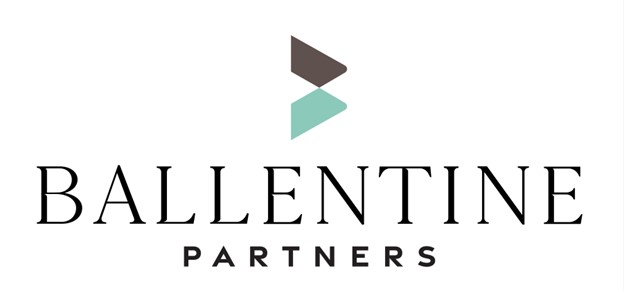

Ballentine Partners

Massachusetts, United States
June 2023
Investment advising
Service with Minor Environmental Footprint
United States
Ballentine Partners, a Decidedly Human Approach to Managing Wealth Ballentine Partners is an independent multi-family office where we measure success not just in financial returns, but also in human outcomes. Over the past 40 years, Ballentine has served a broad range of clients, from individual professionals and entrepreneurs with $4 million in liquid assets to multigenerational families with over $1 billion in assets. For those who seek to align their investment portfolios with personal values or non-financial mission objectives, we have a dedicated team to help define and achieve those objectives. Integrating 18 years of impact investing experience with their vision gives clients the opportunity to make investments in the areas they care about, while seeking to generate competitive financial returns. We are committed to independence and objectivity. We serve our clients as a fiduciary, putting their interests ahead of our own. Our only source of revenue is from fully-disclosed fees paid to us by our clients, plus a small amount from book sales. We do not sell any products or accept payments from third-parties. Our commitment to stakeholders is intentional. From one generation to the next, our goal is to maintain our independence and objectively in service to our clients.
Overall B Impact Score
Governance 8.8
Governance evaluates a company's overall mission, engagement around its social/environmental impact, ethics, and transparency. This section also evaluates the ability of a company to protect their mission and formally consider stakeholders in decision making through their corporate structure (e.g. benefit corporation) or corporate governing documents.
What is this? A company with an Impact Business Model is intentionally designed to create a specific positive outcome for one of its stakeholders - such as workers, community, environment, or customers.
Workers 35.9
Workers evaluates a company’s contributions to its employees’ financial security, health & safety, wellness, career development, and engagement & satisfaction. In addition, this section recognizes business models designed to benefit workers, such as companies that are at least 40% owned by non-executive employees and those that have workforce development programs to support individuals with barriers to employment.
Community 16.8
Community evaluates a company’s engagement with and impact on the communities in which it operates, hires from, and sources from. Topics include diversity, equity & inclusion, economic impact, civic engagement, charitable giving, and supply chain management. In addition, this section recognizes business models that are designed to address specific community-oriented problems, such as poverty alleviation through fair trade sourcing or distribution via microenterprises, producer cooperative models, locally focused economic development, and formal charitable giving commitments.
Environment 5.9
Environment evaluates a company’s overall environmental management practices as well as its impact on the air, climate, water, land, and biodiversity. This includes the direct impact of a company’s operations and, when applicable its supply chain and distribution channels. This section also recognizes companies with environmentally innovative production processes and those that sell products or services that have a positive environmental impact. Some examples might include products and services that create renewable energy, reduce consumption or waste, conserve land or wildlife, provide less toxic alternatives to the market, or educate people about environmental problems.
Customers 21.1
Customers evaluates a company’s stewardship of its customers through the quality of its products and services, ethical marketing, data privacy and security, and feedback channels. In addition, this section recognizes products or services that are designed to address a particular social problem for or through its customers, such as health or educational products, arts & media products, serving underserved customers/clients, and services that improve the social impact of other businesses or organizations.
What is this? A company with an Impact Business Model is intentionally designed to create a specific positive outcome for one of its stakeholders - such as workers, community, environment, or customers.